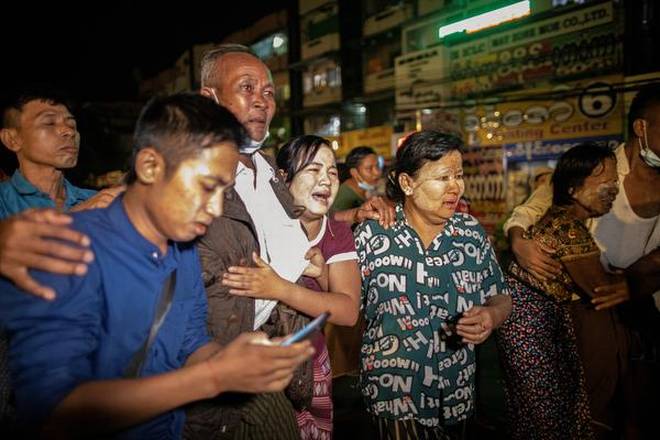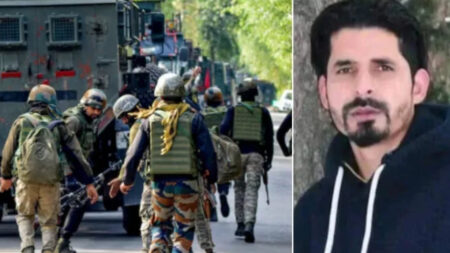Empty pockets , empty promises.
– A classic proverb in Myanmar
According to a local media report, Myanmar’s Junta released over 5600 political from Myanmar’s Insein prison, including Aung San Suu Kyi’s party spokesman and a famous comedian Zarganar. However, Aung San Suu Kyi remains imprisoned.
People react outside Insein prison as Myanmar’s Junta releases prisoners, including people that protested against the military coup, in Yangon, Myanmar, October 18, 2021.
The decision came after the general of the military Junta was excluded from an annual summit of the Association of Southeast Asian Nations (ASEAN). The release is described by activists as a tactic by the ruling military to try and regain its international reputation.
As announced by the state media, 5600 political prisoners who have been arrested or wanted for being part of the anti-coup protest in February would be freed in an amnesty on humanitarian grounds in connection with the Thadingyut festival.
What triggered the detention?
On February 1 2021, the military leaders of Janta took over power in Myanmar by overthrowing the democratically elected government of Aung San Suu Kyi. Since then, the country fell into chaos.
With daily protests continuing for months and widespread mutiny flaring in border regions, a bloody crackdown in February led to thousands of detentions and reports of torture.
According to a non-profit group, Assistance Association for Political Prisoners (AAPP), since the coup, the security forces have arrested more than 9,000 people, of whom an estimated 7,355 are still in detention.

The Crossfire:
In a statement, the current ASEAN chair, Brunei, said there had been “insufficient progress” on a roadmap to restore peace in Myanmar.
The group would “give space to Myanmar to restore its internal affairs and return to normalcy” and thus noted that a “non-political” figure from Myanmar would be invited to the ASEAN summit.
In response to this, the junta chief Gen. Min Aung Hlaing blasted the Association of Southeast Asian Nations (ASEAN), blaming Myanmar’s opposition National Unity Government and saying that ASEAN should have targeted them instead of the Junta.
He echoed, “More violence happened due to the provocations of terrorist groups, no one cares about their violence and is only demanding we solve the issue. ASEAN should work on that.”
The plight of the natives:
Myanmar has been in a fight for independence all over again since the democratically elected government was deposed. The released prisoners would need to sign a document pledging them not to commit any violence against the country.
U.N. Special Rapporteur Tom Andrews noted that the release is welcome, but it was “outrageous” that they were detained in the first place.
Further adding that “the junta is releasing political prisoners in Myanmar not because of a change of heart, but because of pressure,” he said.
The vicious cycle of dissident incarceration in Myanmar

Myanmar is indeed in turmoil since the power-snatch by the coup, which ferociously ended a decade of ‘provisionary” democracy and reforms.
The military forces have killed over 1100 people 9a figure which Janta says is exaggerated) according to the United Nations, and arrested 9000 people, including Suu Kyi.
Therefore, this announcement was nothing more than “a form of distraction for foreign governments”, and in a country used to foreign rule, this is indeed a cheap parlor trick.
ASEAN laid out a five-point roadmap for Myanmar but decided to shun the current administration after failing to commit to the plan. In response, Min Aung Hlaing, the coup general, reiterated the Junta’s five-stage plan to restore democracy.
U.N. Special Rapporteur on Myanmar highlighted that the Junta seeks money, weapon, and legitimacy from the international community and their actions demonstrate that “despite their statements to the contrary, they are not impervious to pressure.”













